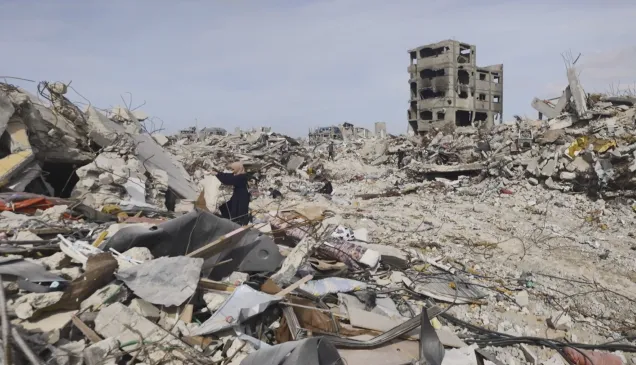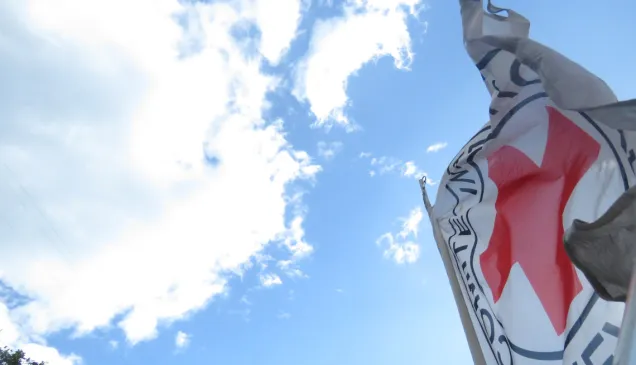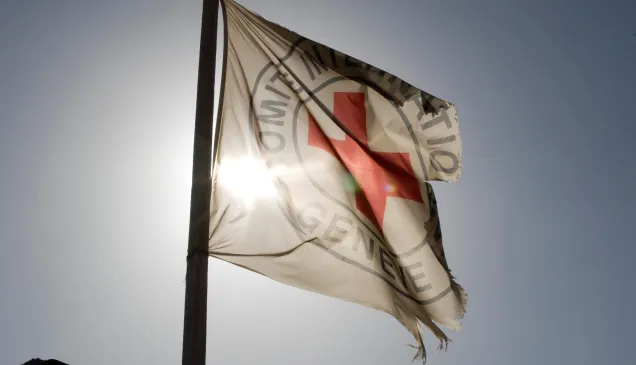Beirut (ICRC) – The International Committee of the Red Cross (ICRC), together with the Lebanese Red Cross (LRC), is organizing a special photo exhibition to mark the 40th anniversary of the start of the civil war in Lebanon. The exhibition will feature photographs from the Red Cross archives and from Lebanese photographers, depicting humanitarian work carried out by the ICRC and LRC during the conflict.
The civil war in Lebanon, which lasted for 15 years, left thousands of people dead and injured. Hundreds of thousands were left homeless. From the start of the conflict, the ICRC deployed a massive humanitarian operation and worked closely with the LRC.
"The war brought about a lot of previously unseen challenges and had profound consequences for our organization," says the head of the ICRC delegation in Beirut, Fabrizzio Carboni.
"We faced a very volatile environment and often had to operate in urban areas under fire, crossing constantly-moving front-lines. It changed our way of thinking and working, globally. It is probably fair to say that the experience contributed to forging the ICRC the way it is today. The conflict highlighted, once again, the importance of neutrality, impartiality and independence when trying to help those affected by a conflict which had internal dimensions, foreign intervention and a large number of groups which were fighting."
The ICRC made a huge effort to relieve the suffering. In 1982, the ICRC provided shelter and medical assistance to 10,000 people in the city of Tyr; in 1983-1984, it visited around 700,000 prisoners across the country; in 1985, it provided emergency relief to more than 170,000 civilians affected by fighting in Saida, Gezzine and Beirut.
At the time, the ICRC worked closely with the Lebanese Red Cross (LRC) whose role was crucial in assisting the victims. LRC workers and volunteers often put their own lives at risk in order to save the lives of others. "This exhibition is but a modest attempt to shed light on a history filled with pain," says the LRC Secretary-General, Georges Kettaneh. "Wherever there are wars and victims, there are human stories. 40 years have passed, but memories still hurt us and are deeply engraved in our hearts and minds."
During the conflict, aid workers had to work in extremely insecure environments. In 1986, two LRC workers were killed and, eight injured, whilst evacuating the wounded. In 1988 – 1989, three ICRC delegates were kidnapped. "What happened then has, unfortunately, been echoed since, in many theaters of operation around the world, particularly in Syria, Yemen and Libya," says Fabrizzio Carboni. "It is vital that aid workers are respected and protected at all times and, those in need of assistance, receive it without hindrance."
Since the end of the civil war in 1990, the ICRC and LRC have continued to work closely together, responding to other major crises, like the 2006 Israel-Lebanon conflict. The issue of those who went missing, during and after the civil war, also remains important. "The families of missing people go through untold suffering, not knowing what happened to their loved ones. They have the right to know," says Fabrizzio Carboni. "In 2012, we launched an Anti-Disappearance Programme to clarify the fate of missing people and opened a hotline for their relatives. We also encourage the relevant authorities to take concrete steps to try to resolve this important issue."
Today, much of the work carried out by the ICRC and the LRC relates to the effects of the war in neighbouring Syria and the massive influx of refugees from that country into Lebanon.
The photographs at the exhibition will illustrate many of the humanitarian issues faced in Lebanon during the past four decades.
The exhibition takes place between 17 and 26 April, 2015 at the Villa Paradiso, Gemmayzeh, Beirut.
For further information, please contact:
Soaade Messoudi, ICRC Beirut, tel: +961 71 802 876
Tarek Wheibi, ICRC Beirut, tel: +961 70 153 928



